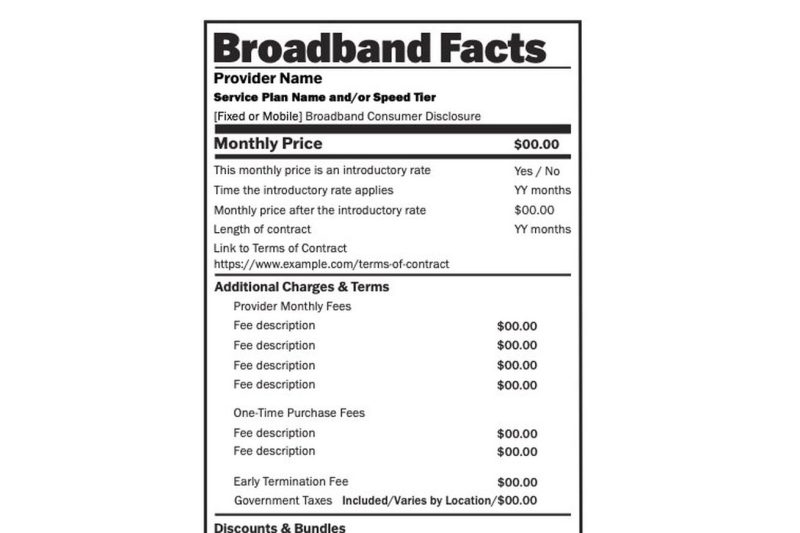In a landmark decision, the Federal Communications Commission (FCC) has mandated the inclusion of nutrition labels for broadband plans, a move that will provide consumers with vital information to make informed decisions about their internet service providers. This new regulation marks a significant step towards enhancing transparency and promoting consumer rights in the highly competitive broadband market.
The FCC’s decision comes at a time when internet access has become an essential utility for millions of Americans, playing a crucial role in daily life, work, education, and entertainment. Despite the ubiquity of broadband services, consumers have often faced challenges in understanding the terms and pricing of different plans offered by ISPs. The lack of standardized information on broadband packages has made it difficult for consumers to compare offerings and determine which plan best suits their needs.
By introducing nutrition labels for broadband plans, the FCC aims to address this longstanding issue and empower consumers with clear and concise information about the key features of each plan. Just as nutrition labels provide valuable details about the ingredients and nutritional content of food products, broadband labels will offer insights into the speed, data limits, pricing, and other essential attributes of internet plans.
For consumers, the introduction of broadband nutrition labels represents a vital tool for navigating the complex landscape of broadband services. With standardized labels, individuals can easily discern the differences between various plans and select the one that aligns with their requirements and budget. Moreover, the labels will facilitate side-by-side comparisons, enabling consumers to make well-informed choices without the need for extensive research or technical expertise.
In addition to benefiting consumers, the FCC’s initiative is expected to promote competition and drive greater transparency in the broadband market. Armed with detailed information about broadband plans, consumers can hold ISPs accountable for their service quality and pricing practices, fostering a more competitive environment that prioritizes customer satisfaction and fair competition.
While the introduction of broadband nutrition labels represents a significant milestone in consumer protection, challenges remain in ensuring widespread compliance and effective implementation of the new regulation. ISPs will need to adjust their marketing strategies and communication practices to incorporate the required information on broadband labels accurately. Additionally, regulatory oversight and enforcement will play a crucial role in verifying the accuracy and accessibility of the information provided on these labels.
As the FCC’s mandate for broadband nutrition labels takes effect, consumers can look forward to a more transparent and user-centric approach to selecting internet plans. With clear and standardized information at their fingertips, individuals will be better equipped to make informed choices and advocate for their rights in the increasingly competitive broadband market. By empowering consumers with essential knowledge about their broadband options, this regulatory initiative paves the way for a more equitable and consumer-friendly digital landscape.


























